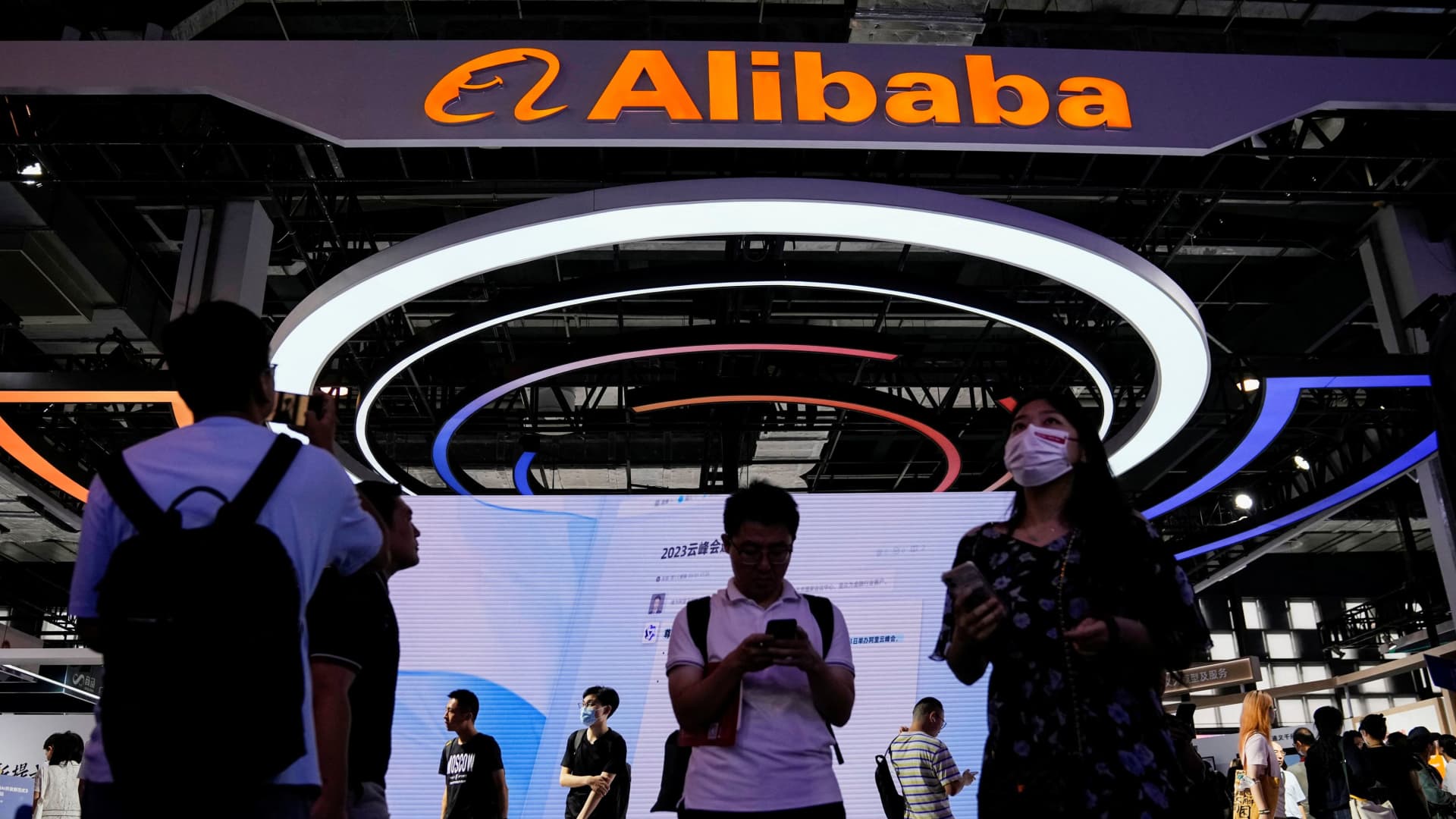

BEIJING — Alibaba is helping the Chinese military to target the U.S., according to a White House memo, the Financial Times reported Friday.
The memo alleged “Alibaba provides tech support for Chinese military ‘operations’ against targets in the U.S.,” according to the FT.
The FT said it could not independently verify the claims, and did not publish a full version of the memo. It was not clear when the memo was released. The White House did not respond to requests for comment, while the FT said it stood by its reporting.
“The assertions and innuendoes in the article are completely false,” Alibaba said in a statement to CNBC on the FT report.
“We question the motivation behind the anonymous leak, which the FT admits that they cannot verify,” Alibaba said. “This malicious PR operation clearly came from a rogue voice looking to undermine President Trump’s recent trade deal with China.”

U.S. President Donald Trump and Chinese President Xi Jinping met in South Korea last month for the first time since Trump began his second term in January. The leaders agreed to a rollback of tariffs and export controls for 12 months, easing bilateral tensions that have escalated this year.
The lack of details in the FT report “does raise the question of whether some of the China hawks in the administration are trying to undercut the President’s deal with Xi Jinping,” Andy Rothman, founder of consulting firm Sinology, said Monday on CNBC’s “Squawk Box Asia.”
He pointed out that Trump had not said anything about the FT report, while noting that all the major U.S. cloud computing companies have contracts with the U.S. government.
The U.S. has ramped up efforts over the last few years to restrict China’s access to advanced semiconductors for training artificial intelligence models.
“The fact that Alibaba’s stock price dropped so rapidly in response [to the FT report] shows how much China’s AI industry is on edge over possible new sanctions,” said Kyle Chan, a Brookings fellow who focuses on China tech.
Alibaba shares had closed 3.78% lower in the U.S. on Friday following the report, but were up more than 1% in Hong Kong on Monday.
Chan pointed out the FT report comes as Alibaba’s open-source Qwen AI model is growing in popularity in Silicon Valley, increasing the threat to the pay-to-use models from U.S. AI companies OpenAI and Anthropic — while investors are increasingly worried about a possible AI bubble.
Alibaba is set to release quarterly results on Nov. 25 ahead of the U.S. market open.
—CNBC’s Eamon Javers and Elaine Yu contributed to this report.








